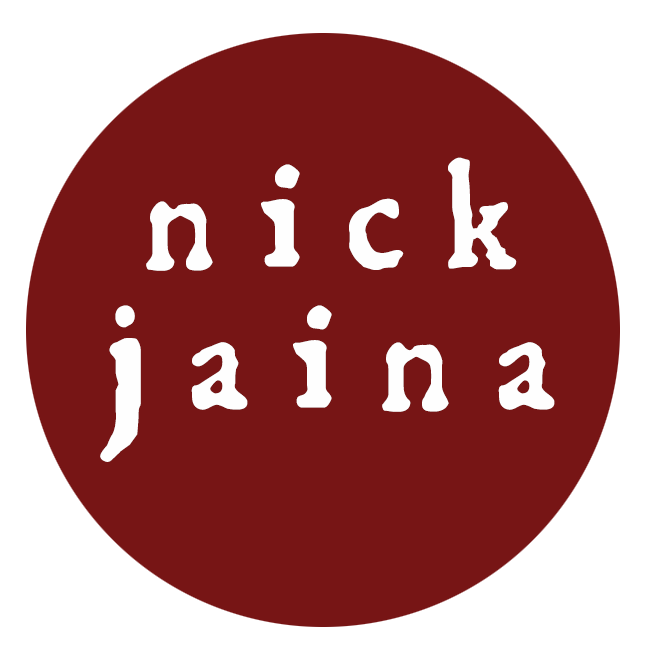The Dreaded Dialogue Exercise
by Nick Jaina
March 19, 2018
I used to think of dialogue as a minor facet of writing, something you sprinkle in here and there. I thought it would be better for the story if I could summon good dialogue, but some writers are able to do it and some aren't, and, well, what can you do.
I spent the winter in Berlin working on my novel and I wanted to get beyond the contemplative, ruminative prose that so many of us love to write. That kind of writing is good and worthwhile stuff, but it is not everything. If you're writing any kind of story about people, whether it's fiction or not, even if it's a textbook, you're going to want to explore some ideas through dialogue.
The good news is that writing dialogue is much easier than everyone thinks it is. You actually know dialogue much better than you know prose. However many books you've read in your life, you've had many more hours of conversations, and you are much more familiar with the rhythms and the imperfections of that language. The problem is that dialogue doesn't feel literary, it doesn't live up to our expectations of what belongs in the canon of great literature.
Still, I have come to accept that dialogue is not just a side show, it is really the show. It might still end up accounting for a small percentage of your finished piece, but it is a vital tool for understanding your characters, your ideas, your self, your blocks with writing, or anything that is on your mind. It is a magic divination tool that can answer questions you don't think you know the answers to.
The only thing you have to do is trust it. You just have to step off the cliff and believe it will go somewhere. I will go into dialogue in much greater detail later, but for now just try writing dialogue the same way it unfolds for you in real life. Don't have a pre-determined goal. Don't even set a scene or say who is talking. Just write quote marks and start talking, and then go to the next line and write a response. Ask a question you don't know the answer to.
I say this is a "dreaded" exercise because any time I bring it up in class people furrow their brow and get frustrated. I think this is a fine reaction. Dialogue makes you face truths and doesn't let you wriggle out of them. It can be hard, but the liberation comes when you remember that dialogue can be anything – the person talking can be wrong, they can be ungrammatical, they can be informal. Anything goes once you write those quote marks.
As an example, I'll paste in here some dialogue I wrote a month ago. I just opened a document and started writing without knowing where it would go in my novel. I had an idea of the characters who were talking, and I genuinely wanted to understand their relationship better. Let's see how it went.
"What do you think of me?"
"Is it not obvious?"
"No."
"I think you're very smart and talented. I enjoy watching you whirl around in the world."
And that's as far as I got. After that I hit the enter key a few times and started a new paragraph about a different scene of the novel. But still I learned something from this exercise. The first person in the dialogue is curious how the other person sees them. The second person is standoffish at first, but then their description is interesting, how they say they enjoy watching the first person "whirl around in the world."
Maybe there's something there to go deeper with. I have a bunch of documents like this where the dialogue doesn't go very far. Other times one question opens up an exciting world and off they go. Intuitive, rhythmic dialogue writing is the key to so much of writing, and you can start it at the very beginning of your project. Any time you hit a roadblock, you can face it with a question. Ask yourself in the form of dialogue to understand your problem better. "What are you afraid of?" "Why don't you want to talk about this?" "What are you avoiding?"
You will be amazed at how much of the answer you know, and how much of it comes up when you force yourself to answer it in the moment, instead of just describing the wallpaper, which is often my default mode of writing.
Much more on this subject to come, but I encourage you to try writing dialogue for just a few minutes a day and see what happens. Trust yourself. We are mapping an unfamiliar town from scratch. There are no wrong directions.


